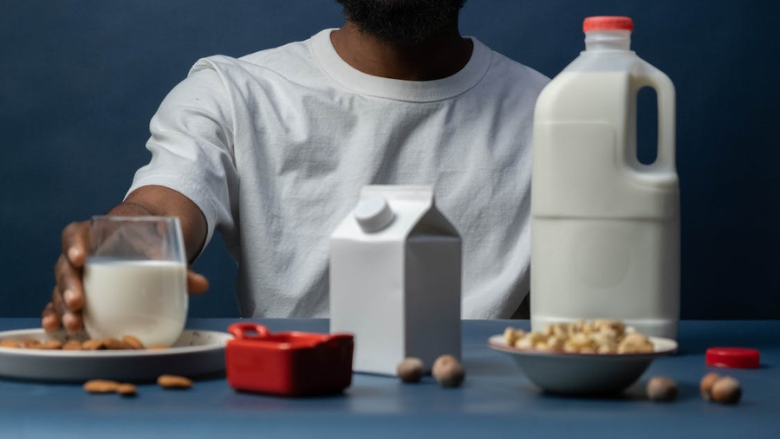To start, I want to say this: be careful with the alternative milk movement. You might think you’re making a healthier choice, but are you really? Unless you have a specific issue with dairy, like lactose intolerance or a dairy allergy, you might want to pause and consider what’s actually in those alternative milks. Are they better for you in the long run? I’m leaning towards no.
When I buy alternative milk, I’m meticulous about checking the label. I look for options with only 3-4 ingredients and absolutely no gums, sugars, or oils. But here’s the thing—when you’re at a coffee shop, do you know what they’re using? It’s hard to say whether the milk or the alternative is the better choice for you in that situation. So, let’s dive in and take a closer look.
Store-Bought Alternative Milks: What’s Really in Them?
Many store-bought alternative milks, like almond, soy, or oat milk, seem like a healthier option. But when you flip the carton around and read the ingredients, you might be surprised. Many of them are loaded with additives like emulsifiers, gums, and oils to give them the texture and mouthfeel we’ve come to expect from milk. They also often contain added sugars to enhance flavor.
These additives can cause digestive issues for some people and may not be great for your health in the long term. While alternative milks can be a good option for those who need them, it’s important to choose brands that keep it simple and stick to the basics.
Homemade Alternative Milks: A Cleaner, Fresher Option
Making your alternative milk at home is a fantastic way to control what goes into your body. You can keep it pure and simple, using just the main ingredient—like almonds, oats, or coconut—and water. Some people like to add a pinch of salt or a touch of vanilla for flavor, but that’s entirely up to you.
Here’s a basic recipe to get you started:
Homemade Almond Milk
1 cup of raw almonds, soaked overnight
4 cups of water
A pinch of sea salt
Optional: 1 tsp vanilla extract for flavor
Instructions:
Drain and rinse the soaked almonds.
Combine almonds and water in a blender.
Blend on high until the almonds are finely ground and the mixture looks creamy.
Strain the mixture through a nut milk bag or a fine mesh sieve into a bowl.
Transfer the milk to a glass jar and store it in the fridge for up to 4 days.
This almond milk is free from all the unnecessary additives and preservatives you find in store-bought versions. It’s fresh, delicious, and as natural as it gets.
Dairy Milk: The Original Whole Food
When it comes to dairy milk, it’s a whole food that has been consumed for centuries. It’s packed with essential nutrients like calcium, vitamin D, and protein. However, the quality of dairy milk can vary greatly depending on how it’s produced. If you choose to drink dairy, look for milk that comes from grass-fed cows and is minimally processed.
The Verdict: Milk or Alternative Milk?
So, what’s better—milk or alternative milk? The answer isn’t so straightforward. It depends on your personal health needs and preferences. If you enjoy dairy and it agrees with your body, then high-quality dairy milk can be a wonderful part of a healthy diet. If you prefer or need to avoid dairy, then making your own alternative milk at home is a great way to ensure you’re getting a clean, wholesome product.
The key is to enjoy your food and make choices that align with your health goals. Whether you opt for dairy or an alternative, the most important thing is that you’re mindful of what you’re putting into your body and that you take the time to savor and enjoy it.
Recipes for Homemade Alternatives
Oat Milk:
1 cup rolled oats
4 cups water
Optional: A pinch of salt, 1 tsp vanilla extract
Instructions:
Blend oats and water in a blender until smooth.
Strain through a fine mesh sieve or cheesecloth.
Store in the fridge for up to 4 days.
Coconut Milk:
1 cup unsweetened shredded coconut
4 cups hot water
Optional: 1 tsp vanilla extract
Instructions:
Blend coconut and hot water in a blender until well combined.
Strain through a nut milk bag or fine mesh sieve.
Store in the fridge for up to 4 days.
By making your own milk, you take control of your health, reduce your exposure to unnecessary additives, and connect more deeply with the food you consume. Enjoy your journey to eating healthy, whole foods, and savor every delicious moment.


